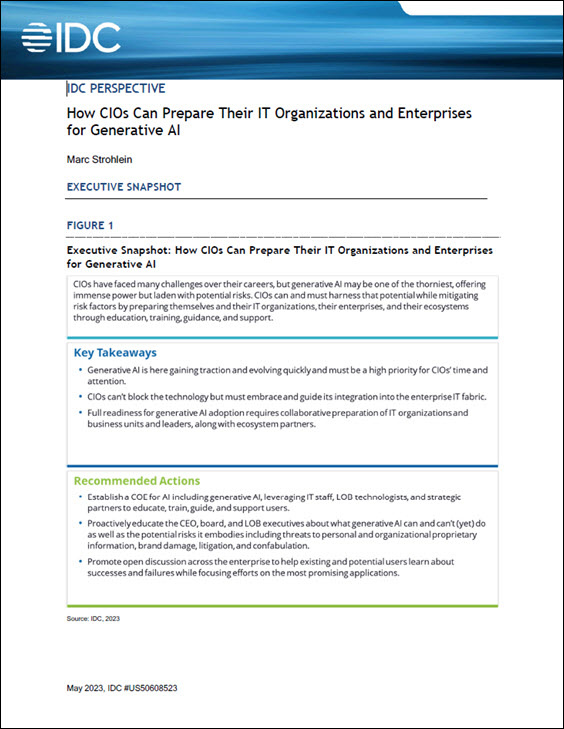 NewVantage Partners, strategic advisors in big data and business innovation to Fortune 1000 businesses, has released the results of its 2017 5th Annual Big Data Executive Survey, entitled “Big Data Business Impact: Achieving Business Results through Innovation and Disruption.”
NewVantage Partners, strategic advisors in big data and business innovation to Fortune 1000 businesses, has released the results of its 2017 5th Annual Big Data Executive Survey, entitled “Big Data Business Impact: Achieving Business Results through Innovation and Disruption.”
The 2017 Big Data Executive Survey reports what executives from 50 Fortune 1000 firms see as the key factors driving big data adoption, investment – and success. Survey respondents include top business and technology executives from such blue-chip firms as American Express, Biogen, Bloomberg, Capital One, Charles Schwab, Citi, Disney, Fidelity Investments, Ford Motors, General Electric (GE), JPMorgan Chase, MetLife, United Parcel Service (UPS), and Wells Fargo, among others.
As a disruptive force, Big Data continues to be fueled by proliferating data volumes and new data sources growing at an unprecedented pace,” said Randy Bean, Founder and CEO of NewVantage Partners and prominent industry author and speaker. “But executives are bracing themselves for more disruptions over the next decade, and their focus on Big Data has turned to ensuring measurable results, tangible business value, and innovative benefits that will transform their business. That demand for concrete evidence is the central theme of our 2017 Big Data Executive Survey, and has yielded some very clear conclusions.”

Key findings of the 2017 New Vantage Partners Big Data Executive Survey include:
1. Executives report measurable results from Big Data investments.
Corporations are achieving measurable results and business benefits from their Big Data investments. That is the principal finding of the 2017 executive survey. A strong plurality of executives, 48.4%, report that their firms have realized measurable benefits as a result of their Big Data initiatives. A remarkable 80.7% of executives characterize their Big Data investments as successful, with 21% of executives declaring Big Data to have been disruptive or transformational for their firm.
2. Cultural challenges still remain an impediment to successful business adoption.
In spite of the successes, executives still see lingering cultural impediments as a barrier to realizing the full value and full business adoption of Big Data in the corporate world. 52.5% of executives report that organizational impediments prevent realization of broad business adoption of Big Data initiatives. Impediments include lack or organizational alignment, business and/or technology resistance, and lack of middle management adoption as the most common factors. 18% cite lack of a coherent data strategy.
3. Firms are focusing on opportunities to innovate — while reducing expense levels.
Firms are striving to establish data-driven cultures (69.4%), create new avenues for innovation and disruption (64.5%), accelerate the speed with which new capabilities and services are deployed (64.5%), launch new product and service offerings (62.9%), “monetize” Big Data through increased revenues and new revenue sources (54.8%), and transform and reposition their business for the future (51.6%). And, of course, 72.6% are seeking to decrease expenses through operational cost efficiencies — with 49.2% reporting successful results from their cost reduction efforts as a result of Big Data investments.
4. Chief Data Officers will be expected to step up to lead the data innovation charge.
A majority of firms report having appointed a Chief Data Officer (55.9%). While 56% see the role as largely defensive and reactive in scope today — driven by regulatory and compliance requirements– 48.3% believe that the primary role of the Chief Data Officer should be to drive innovation and establish a data culture, and 41.4% indicate that the role of the CDO should be to manage and leverage data as an enterprise business asset. Only 6.9% suggest that regulatory compliance should be the focus of the CDO.
5. Big firms are bracing for a decade of disruptive change.
Executives fear that disruption is looming on the immediate horizon. A robust 46.6% of executives express the view that their firm may be at risk of major disruption in the coming decade. They envision a future where “change is coming fast” and it may be “transform or die”. In addition to Big Data, these firms see disruption coming from a range of emerging capabilities, including artificial intelligence and machine learning (88.5%), digital technologies (75.4%), cloud computing (65.6%), block chain (62.3%), and financial technology solutions (57.4%).
If the survey respondents were celebrating the success of Big Data programs, they have no plans to rest on their laurels as almost half felt that their firms were at risk of major disruption in the next decade,” concluded Bean and NewVantage Partners Senior Fellow Tom Davenport, world-renowned thought-leader in management practices and data and analytics. “We’re not surprised—in fact we wonder why the number isn’t higher — and we look forward to learning how Big Data, new technologies, and organizational change will drive these successful firms to overcome potential disruptions.”
Sign up for the free insideAI News newsletter.



